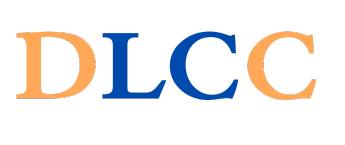Oakland $50 Weekly Stimulus Check for Students : The Oakland Unified School District (OUSD) has introduced the Equitable Design Project, an innovative pilot program aimed at reducing absenteeism and supporting students’ well-being. This initiative provides a $50 weekly stimulus check to students who meet criteria such as perfect attendance and participation in mental health assessments. By addressing both financial and emotional needs, the program seeks to enhance student engagement and attendance.
Funded through attendance-based revenue and a $200,000 grant from notable foundations, this project could set a precedent for other districts. Its success might pave the way for similar programs nationwide, transforming approaches to student support and attendance through a combination of financial incentives and comprehensive mental health care.
Contents
Overview of the Program
The Equitable Design Project is a pilot program that provides students with a $50 weekly stimulus check. The initiative, which began in August 2024, is currently operational in seven schools within the OUSD. The program aims to address the issue of absenteeism by incentivizing consistent attendance and supporting students’ financial and emotional needs.
Goals of the Program
- Improve Attendance: Encourage students to attend all classes regularly.
- Support Emotional Well-being: Integrate mental health assessments to address emotional challenges.
Duration and Scope
- Initial Phase: The program will run for 10 weeks.
- Participating Schools: Seven schools across Oakland.
Eligibility Criteria
To qualify for the $50 weekly payment, students must meet the following criteria :
| Criteria | Requirement | Verification/Purpose |
|---|---|---|
| Perfect Attendance | Students must attend school from Monday to Friday without any absences. | Attendance records will be closely monitored to ensure eligibility. |
| Mental Health Evaluation | Students are required to participate in a mental health assessment. | To address any emotional or psychological barriers to academic success. |
Funding Sources
The Equitable Design Project is funded through a combination of revenue models and grants. Here’s a breakdown of how the program is financed:
Attendance-Based Revenue
- Mechanism: Schools receive funding based on student attendance. When students are present, schools receive more funding.
- Impact: By improving attendance, the program helps schools maintain financial stability.
Grants
- Major Contributors: Education First, the NoVo Foundation, and Rockefeller Philanthropy.
- Grant Amount: $200,000 has been allocated to support the program.
Addressing Financial and Emotional Needs
The program aims to alleviate financial pressures on students and their families while addressing mental health needs.
Financial Support
- Usage: The $50 weekly payment can be used for essential needs such as transportation, meals, and school supplies.
- Objective: To reduce economic barriers to regular attendance.
Emotional Support
- Mental Health Component: The requirement for a mental health evaluation highlights the program’s commitment to holistic student support.
- Goal: To improve overall well-being and academic performance.
The Challenge of Absenteeism in Oakland
Absenteeism remains a significant issue in Oakland schools. Data from 2022 revealed that 61% of students in the OUSD missed at least one out of every ten school days. This high rate of absenteeism is linked to lower academic achievement and increased dropout rates.
Impact of Absenteeism
- Academic Performance: Frequent absences negatively affect grades and learning outcomes.
- Dropout Risk: Higher absenteeism increases the likelihood of students dropping out.
Program’s Response
- Incentive Structure: By offering a financial incentive, the program seeks to improve attendance and engage students in their education.
- Holistic Approach: The inclusion of mental health assessments aims to address underlying issues contributing to absenteeism.
Oakland’s Leadership in Educational Innovation
Oakland is leading the way with this unique approach to improving school attendance. The city is currently the only one in the U.S. implementing a financial incentive for attendance.
Potential for Broader Impact
- Model for Other Districts: If successful, the program could serve as a model for other school districts facing similar challenges.
- Expansion Possibilities: Positive results could lead to the program’s expansion to more schools in Oakland and potentially to other districts nationwide.
Monitoring and Evaluation
- Performance Metrics: The effectiveness of the program will be assessed based on improvements in attendance and academic performance.
- Future Prospects: Success in the pilot phase may prompt further investment and broader implementation.
Conclusion
The Equitable Design Project marks a groundbreaking approach to tackling absenteeism and enhancing student well-being in Oakland. By offering $50 weekly payments for perfect attendance and incorporating mental health evaluations, the program aims to not only boost school attendance but also address underlying emotional challenges that impact academic success. This dual-focus approach supports students both financially and emotionally, making a significant impact on their overall school experience.
If successful, the initiative could become a model for other districts across the country. Its innovative blend of financial incentives and mental health support may set a new standard for improving student engagement and attendance, potentially inspiring similar programs nationwide and transforming how schools approach these critical issues.
FAQs
What are the eligibility requirements for the $50 weekly stimulus check?
Students must have perfect attendance from Monday to Friday and complete a mental health evaluation.
How is the program funded?
The program is sponsored by attendance-based income and a $200,000 grant from Education First, NoVo Foundation, and Rockefeller Philanthropy.
What will happen if the program works?
If successful, the program may expand to additional schools within Oakland and potentially be adopted by other districts nationwide.






